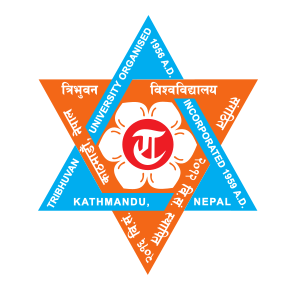Overview
Master of Science (MSc) in Biotechnology – NIST Higher Education, Lainchaur, Kathmandu
MSc Biotechnology at NIST Higher Education (National College—NACOL), Lainchaur, Kathmandu, runs under Tribhuvan University’s Institute of Science and Technology .
Program: MSc in Biotechnology
Affiliation: Tribhuvan University, Institute of Science and Technology
Host College: National College (NACOL), NIST Higher Education, Lainchaur, Kathmandu
Duration & Structure: Two academic years; four semesters; thesis/dissertation included
Credits & Pass Marks: Total 60 credits; pass mark 50% in theory and practical papers (as per CDBT/TU).
Highlights
-
Semester system: Four semesters combining advanced theory, practical work, seminars, and a supervised dissertation.
-
Credit load: 60 credits across core and elective components with defined internal and external evaluation.
-
Entrance governance: IOST manages MSc entrance calls, payment links, and timelines on official pages.
-
Campus and contact: NIST Higher Education lists MSc Biotechnology among its programs at Lainchaur, Kathmandu.
Curriculum Details
The curriculum advances molecular and cellular foundations into applied bioprocess and laboratory practice across four semesters.
-
Core theory strands: Cell biology and genetics, genetic engineering, molecular biology, biochemistry context for biotechnology, immunology, bioinformatics basics, and research methodology. (Cutn)
-
Applied/industry strands: Fermentation and bioprocess principles, quality concepts, documentation, and introductory downstream steps as mapped in the CDBT curriculum.
-
Research & dissertation: Topic selection, proposal, data collection/analysis, written thesis, and viva in the final semester.
College delivery follows the TU/CDBT syllabus sequencing. Internal assessments (seminars, lab records, presentations) support semester-end examinations conducted under IOST procedures.
Objectives
-
Build advanced understanding of molecular mechanisms and biotechnological applications across health, environment, and industry.
-
Develop the capacity to plan, execute, and document research that meets university and laboratory standards.
-
Strengthen analytical, presentation, and scientific writing skills for professional and academic roles.
Scope
Graduates pursue roles in diagnostic and research laboratories, pharmaceutical and biotech production, biotechnology services, environmental and water testing, and food-related quality units. The program also supports progression to M.Phil./Ph.D. and research appointments within Nepal or abroad.
Learning Outcomes
Students who complete the degree should be able to:
-
Explain molecular and cellular processes relevant to biotechnology and interpret experimental data with appropriate controls.
-
Operate standard lab workflows (culture, identification, basic molecular techniques) with accurate records.
-
Draft proposals, analyze results with statistics where needed, and present findings in written and oral formats.
-
Follow quality documentation norms compatible with regulated environments.
Skill Development Modules
-
Laboratory practice: Biosafety, aseptic technique, media preparation, culture maintenance, basic PCR/ELISA where facilities allow, instrument use and logs.
-
Data & analysis: Experimental design, error awareness, spreadsheets/statistical basics, tables/figures that meet reporting norms.
-
Quality systems: SOP drafting, deviation notes, internal QC records, and equipment calibration documentation.
-
Scientific communication: Abstracts, literature mapping, citations, posters, slides, and seminar delivery.
Teaching Methodology
Faculty combine lectures, demonstrations, rotating practicals, journal clubs, and guided seminars. Internal checks include short tests, lab notebooks, presentations, and pre-board reviews. Semester-end examinations and the dissertation follow IOST/CDBT procedures for the session.
Admission Requirements
-
Eligibility: Bachelor’s degree in a relevant life-science field as specified by the Central Department of Biotechnology (e.g., Biotechnology; Agricultural Science; Biochemistry; Environmental Science with biological science and chemistry; Medicine; Food Technology; related areas) meeting the session’s grade criteria.
-
Entrance: IOST-administered MSc entrance; candidates apply via the official IOST entrance portal and follow the current notice for deadlines, fee payment, and exam centers.
-
Documents: Application form, photographs, academic transcripts/mark sheets, character and migration certificates, identity document, and entrance score sheet as per the notice.
-
Pass & credits: Degree award requires meeting the 50% pass mark rule and completing 60 credits, including the dissertation.
Career Opportunities
-
Laboratory and diagnostics: Molecular and immunoassay support, culture-based testing, documentation in supervised settings.
-
Pharma/biotech: In-process checks, environmental monitoring, cleanroom logs, and basic downstream tasks.
-
Food and environment: Hygiene audits, microbial indices, and quality control tests aligned to local standards.
-
Research and teaching: Assistantships, project roles, and progression to doctoral study subject to entrance and funding routes.
Scholarships and Financial Aid
-
Merit-linked notes: NIST communicates performance-based considerations in line with its institutional policy during admission or semester review periods.
-
Session-specific updates: Applicants should confirm any active schemes and document requirements at the NIST admission office during the intake window.
Why Choose This Course?
You study a TU-IOST governed master’s program with a defined semester map, clear pass/credit rules, and a mandatory dissertation. The Lainchaur location connects students to laboratories, agencies, and institutions around Kathmandu for visits or collaboration within policy and availability.
NIST lists MSc Biotechnology among its active programs, which helps you coordinate campus processes alongside IOST entrance schedules.
Conclusion
MSc Biotechnology at NIST Higher Education (NACOL) offers a structured path under TU-IOST. The mix of advanced coursework, scheduled practicals, quality documentation, and supervised dissertation prepares graduates for regulated laboratories, production environments, and research roles, while keeping academic progression options open.
FAQ
Q1. How many credits are required to complete the MSc Biotechnology?
The program carries 60 credits in total. Students must also meet the 50% pass mark in theory and practical papers.
Q2. Who conducts the entrance and where do I apply?
IOST conducts the MSc entrance and publishes application and payment links on its official site under “Entrance Call/Downloads.”
Q3. Is a dissertation mandatory?
Yes. The final semester includes a thesis/dissertation with a written report and viva as outlined in the TU/CDBT curriculum.
Q4. Where can I view the current curriculum or model questions?
The Central Department of Biotechnology site provides the MSc Biotechnology syllabus and entrance curriculum/model questions.
Q5. Does NIST officially offer MSc Biotechnology at Lainchaur?
NIST Higher Education lists M.Sc. Biotechnology among its programs and provides contact details and office hours for Lainchaur.


















